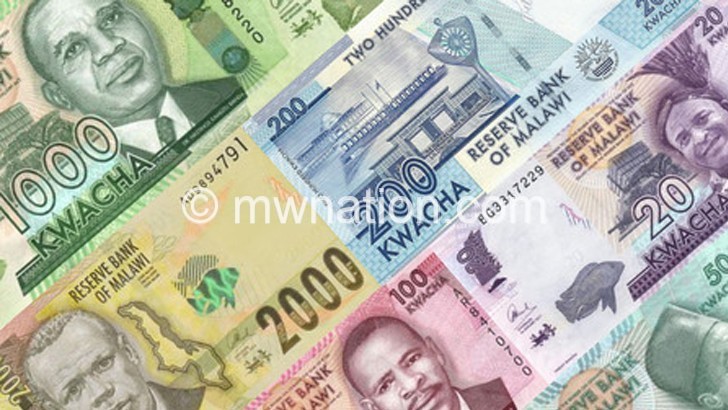Shrinking reserves to dampen Kwacha further—Fimda
Financial Market Dealers Association of Malawi (Fimda) says the continued decline of the country foreign exchange reserves will continue to impair the central bank’s capacity to support the market with foreign exchange liquidity critical for a stable kwacha.
Fimda’s sentiments come against a backdrop of the continued decline of the Malawi’s foreign exchange reserves which according to latest market data dwindled further in the just ended month.

According to Reserve Bank of Malawi (RBM) Financial Market Developments Report for Tuesday, gross official reserves—under the direct control of RBM—dropped to $389.26 million (or 1.56 months of import cover) in November from $502.98 million (or 2.41 months of import cover) in January.
In an interview on Tuesday, Fimda president Mclewen Sikwese observed that the widening deficit between supply and demand of foreign exchange from the withdrawn support has increased pressure on the market and coming into the foreign exchange demand intensive period of payment for agricultural inputs would continue to put more pressure on the kwacha to depreciate.
He said: “The kwacha will therefore be under great pressure in the short-term and should continue a gradual depreciation path. With the import dependent structure of our economy, imported inflation pressures will elevate pushing up the inflation print and exerting pressure on authorities to raise interest rates.”
Sikwese, who underlined the need for a quick fix to the solution, however pointed that short term measures to address foreign exchange shortages tend to kick the can down the road highlighting that it is exactly why the country is in this situation to begin with.
“We have traditionally borrowed short-term through foreign exchange swaps to manage structural long-term fundamental economic problems and sadly applied those funds to non-forex generating sectors of the economy.
“However, in the short-term we will need to address both the demand and supply challenges we are currently facing. Firstly, short-term borrowing specifically for potentially high forex generating sectors, following through on export proceeds from the emerging high value exports (such as soya) and exiting or restricting foreign exchange intensive consumption and non- forex generating programmes,” he said.
The depletion of the reserves has in turn continued to strain the exchange rate movement, with the kwacha depreciating against all major currencies in the past eight months and particularly slipping to K823 against the dollar, according to RBM figures.
Earlier, associate professor of Malawi University of Business and Applied Sciences economics Betchani Tchereni observed that the depletion of the reserves could also be inflationary.
“We are a predominantly importing country which cannot afford to have a depreciating local currency. As a result, local people may have their welfare eroded away,” he said.
Malawi, an agro-based economy, experiences seasonality in the foreign exchange market; hence, the depreciation of the currency also follows the seasonal nature of the market.
During the lean season there is less forex coming into the market as the tobacco season is closed and there is high demand for forex as farm inputs like fertiliser are being imported, like the case now.
Besides these factors, the kwacha fall has been worsened by the reduced trading activity in view of the Covid-19 pandemic which resulted in lower than expected export earnings amidst the growing demand for Covid-19 related imports and seasonal agriculture materials.





